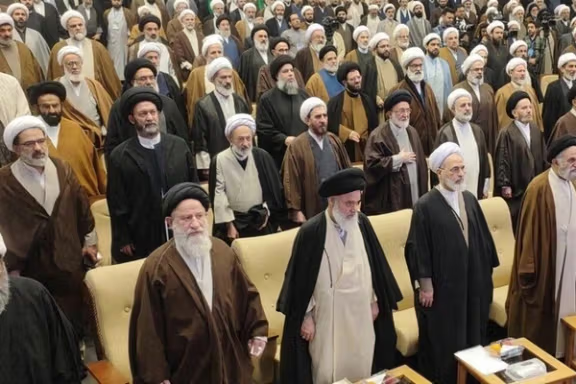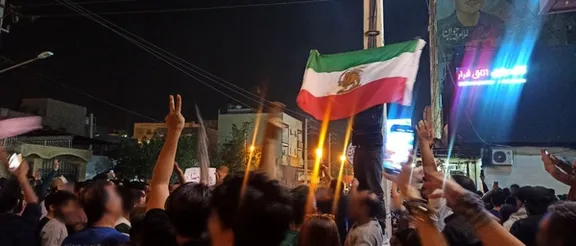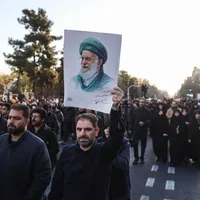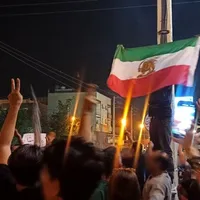The members of the Society of Seminary Teachers of Qom, many of whom are senior religious scholars in Iran’s influential Shi’ite seminaries, said they were endorsing a fatwa which declared those who threaten religious authority figures – including the Supreme Leader – fall into the category of mohareb and must face the corresponding religious and legal consequences.
The clerics did not cite a specific decree, referring only to a “sensitive, historic, and courageous fatwa” by senior religious authorities in Qom and Najaf. Two recent fatwas by Grand Ayatollah Hossein Nouri Hamedani and Nasser Makarem Shirazi align with this description. The fatwas were issued in response to remarks by Israeli officials about assassinating Ali Khamenei.
“The Supreme Leadership and the institution of religious authority are symbols of the dignity of the Islamic Ummah,” the clerics said in the statement published by the IRGC-affiliated Fars News Agency. “Threats against them are threats against the foundations of Islam itself.”
“This fatwa is necessary and timely,” the Qom-based clerics wrote. “Defense of religious leadership is a duty for all Muslims.”
The signatories include prominent figures such as Ahmad Khatami and Alireza Arafi, both members of Iran’s Guardian Council, as well as senior clerics from the Qom seminary, many of whom hold official or semi-official posts in Iran’s establishment.
Iran has a history of issuing religious rulings with international consequences, most notably the 1989 fatwa by Ayatollah Ruhollah Khomeini calling for the killing of British author Salman Rushdie. That fatwa remained in place for decades and was widely cited after a 2022 knife attack on Rushdie in New York.
Grossi in crosshairs
In their joint statement, the clerics called for the prosecution of several international figures, including US President Donald Trump, Israeli Prime Minister Benjamin Netanyahu, and International Atomic Energy Agency (IAEA) Director General Rafael Grossi, accusing them of being “war criminals” complicit in attacks on Iranian leadership and infrastructure.
“We demand that international courts try and punish Grossi, Trump, Netanyahu, and all those who have betrayed humanity,” the clerics said.
The call for prosecuting Grossi comes amid growing hostility between Tehran and the UN nuclear watchdog following the recent Iran-Israel war.
Iranian authorities have accused Grossi and the IAEA of facilitating attacks on Iranian nuclear sites through what they call “deceptive inspections” and “intelligence sharing” with hostile governments.
“The IAEA has acted not as a neutral body but as a tool of Western espionage,” said cleric-turned-lawmaker Mahmoud Nabavian last week, alleging that inspectors had smuggled surveillance equipment into nuclear facilities. “They are spies disguised as inspectors, and Mr. Grossi is fully complicit.”
On Wednesday, Ali Mozaffari, deputy head of Iran’s judiciary, said Iran was considering trying Grossi in absentia for allegedly enabling Israeli strikes on Iranian nuclear facilities. Mozaffari said the judiciary was compiling evidence of “foreign aggression” and would pursue legal remedies.
Hardline media outlets, including Kayhan newspaper — closely aligned with Khamenei — have called for Grossi’s arrest and even his execution should he travel to Iran.
Western governments have condemned the threats against Grossi. Britain, France, and Germany released a joint statement last month expressing “full support for the independence and impartiality of the IAEA” and warning Tehran against politicizing the agency’s work.






